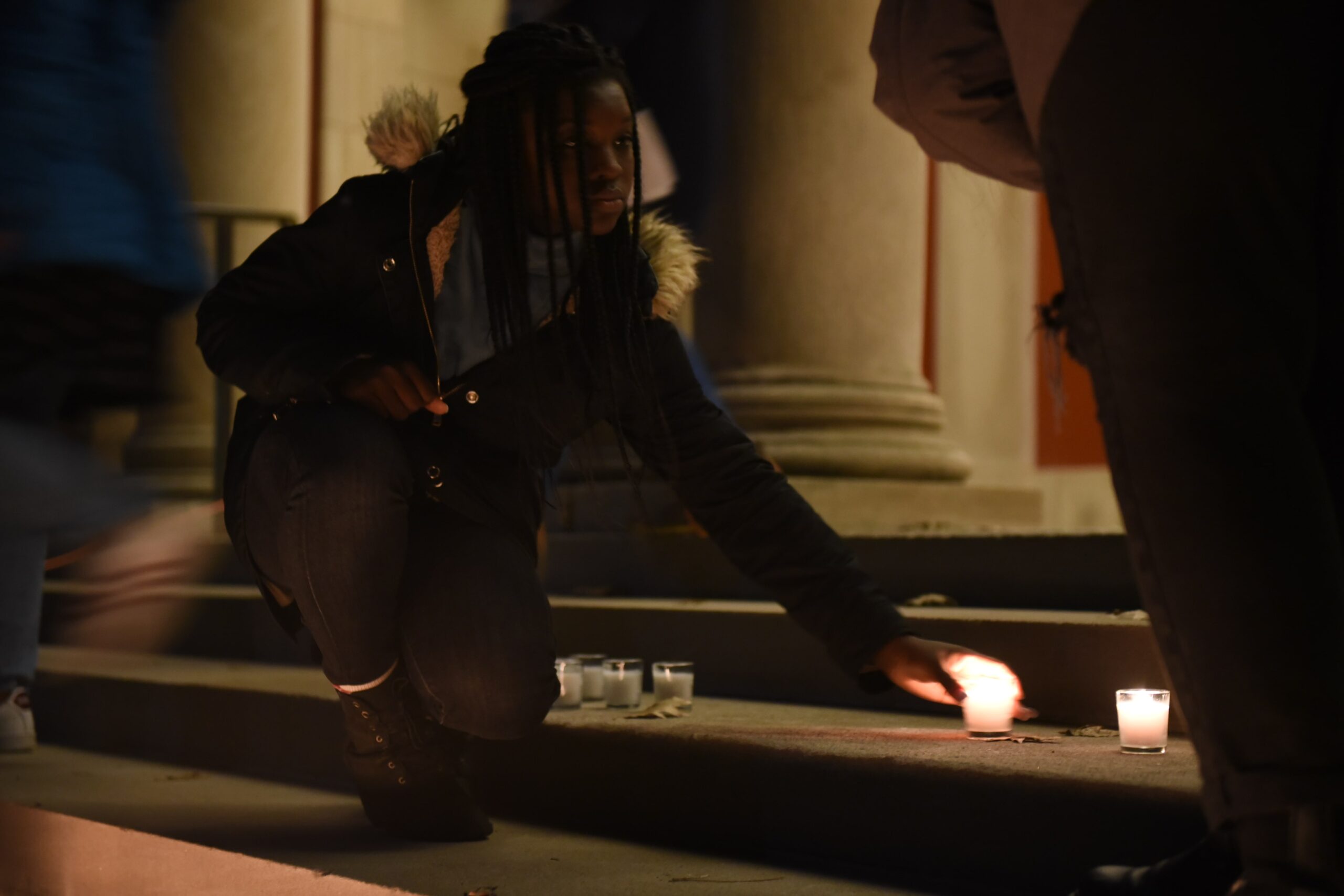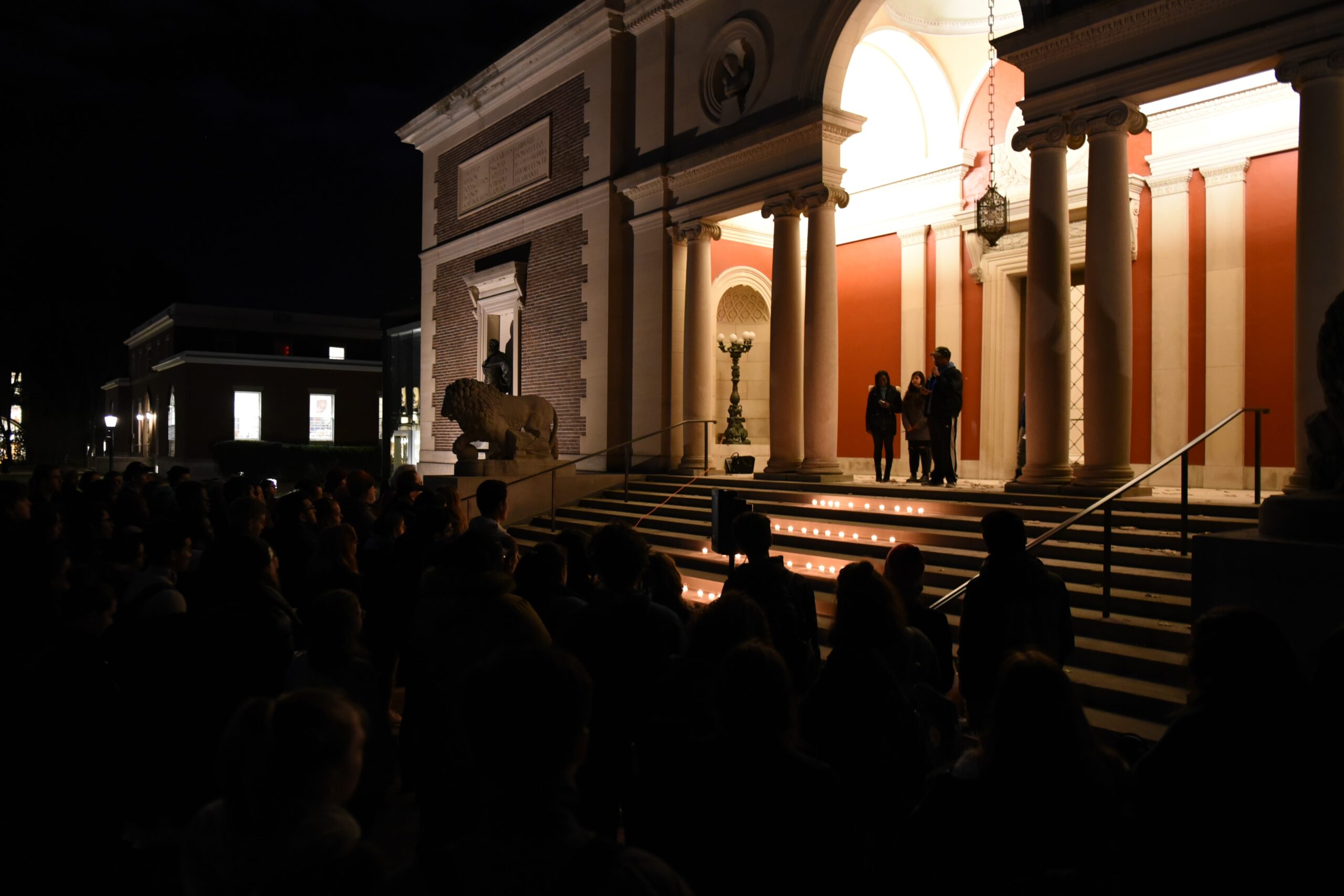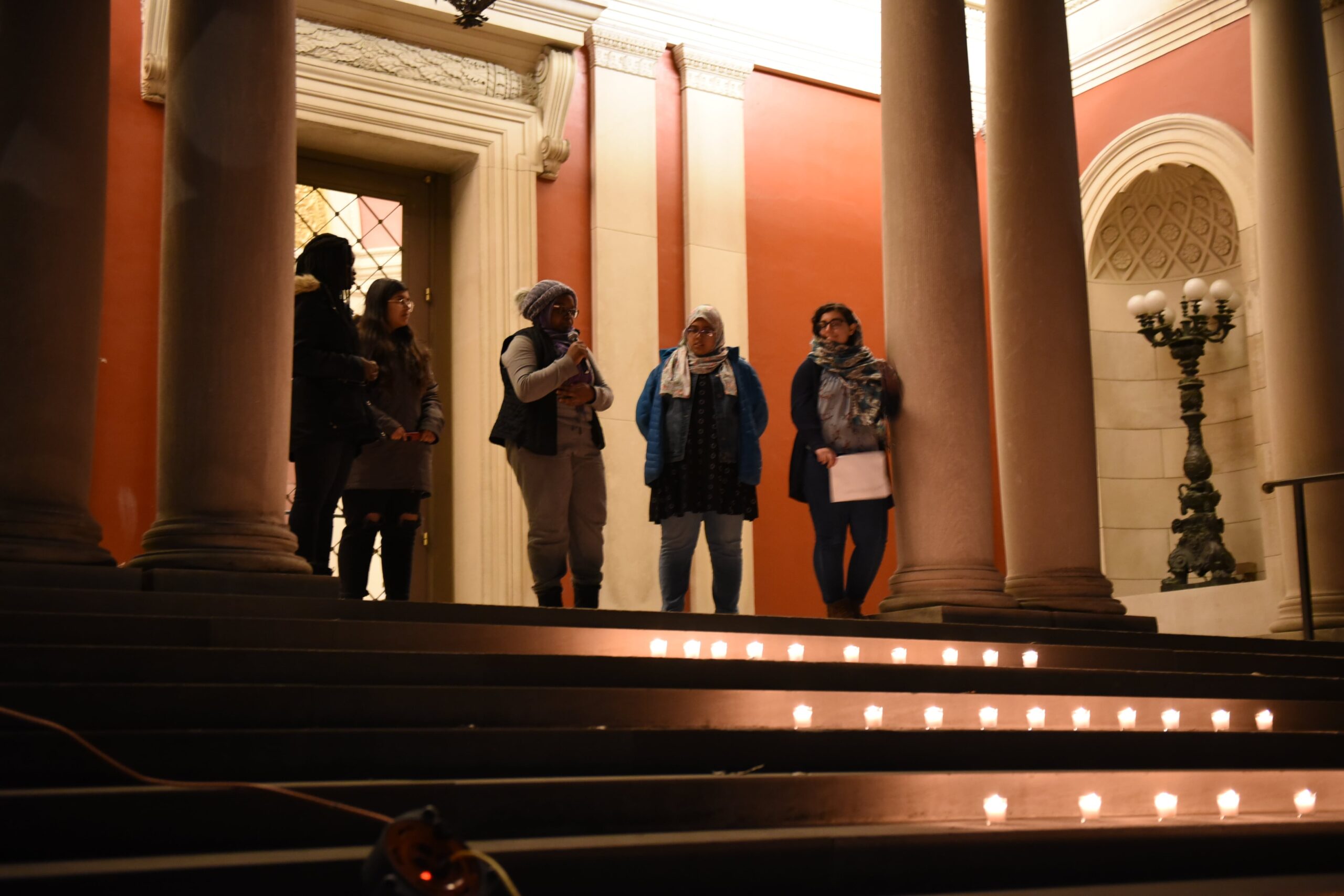Vigil honors victims of Christchurch massacre
April 19, 2019
 Shuhao Liu The Bowdoin Orient
Shuhao Liu The Bowdoin OrientAt 9 p.m. on Tuesday evening, 50 candles illuminated the steps of the Bowdoin College Museum of Art, each representing a victim of the terror attacks at the Al Noor Mosque and the Linwood Islamic Center in Christchurch, New Zealand on March 15. Dozens of students, faculty and staff gathered for the vigil to honor the victims of the massacre, which had taken place exactly a month before.
“Pain and suffering doesn’t have an expiration date,” said Anam Shah ’21, social communications chair of the Muslim Student Alliance (MSA).
As students in MSA lit the candles, Shah read the names of the victims. Shah also read the ages of victims who were 21 or younger.
The youngest, Mucad Ibrahim, was only three years old.
 Shuhao Liu The Bowdoin Orient
Shuhao Liu The Bowdoin Orient“We will survive, we will thrive,” said Bowdoin Student Government President Mohamed Nur ’19 to the assembled crowd.
Nur called Islam his greatest source of strength, explaining that it had taught him to be compassionate and to work for the benefit of others.
In addition to the candle-lighting and Nur’s speech, MSA members spoke about Islamaphobia, xenophobia and white supremacy and called for the campus to stand in solidarity with other groups. No one should have to fear for their safety while gathering in their places of worship, they said.
 Shuhauo Liu the Bowdoin Orient
Shuhauo Liu the Bowdoin OrientShah and other MSA board members Hayat Fulli ’19, Fanta Traore ’20 and Hikmah Okoya ’21, along with MSA member Safa Saleh ’22, planned the ceremony with the support of Eduardo Pazos, director of religious and spiritual life.
Fulli, MSA president, thought the timing of the vigil created a healing space for those who are still feeling the effects of the shooting.
“Unfortunately we live in a world where so much hate happens and so much violence, sometimes [our attention] … moves onto the next event [that] happens,” she said. “So we wanted to bring it back into our focus so we could at least have that moment to process and grieve for this campus because I don’t feel like we have yet.”
Fulli noted the particular importance of Bowdoin—a community that includes Muslims—taking a moment to recognize the attack.
“I know we have a very small Muslim population, so sometimes it may seem like there aren’t that many, but it is still an important part of our community here and around the world, too,” she said.
Since the attack happened over break, MSA board members were not together while they were initially processing their experiences and feelings in its aftermath. Shah messaged the board’s group chat the day after the attack and suggested that they send out a message addressing the shooting, but it was difficult to start a meaningful discussion while they were all in different places. Shah explained that the board members wanted to be able to put their full effort and attention into an event, so they decided to wait.
“That’s the best way to do it—being with each other,” Shah said.
The group began planning how to address the attacks at the first Friday prayer after break. MSA holds group prayers every Friday afternoon in 30 College, but this time they decided to meet in a larger space in the Russwurm African American Center.
The meeting started with a video of a khutbah—a speech given by an imam—made in response to the massacre that encouraged Muslims to find a light in the darkness and spread peace in the aftermath of the attack. After the video, board members and the few other students who attended prayed together and then began a discussion of the shooting and their experiences processing it, which included frustration regarding the lack of support or condolences from the College.
“There [was] absolutely no conversation via email or even people reaching out, in terms of administration, that something like this happened,” Shah said.
Without a statement from the administration to the College community, MSA members decided it was necessary for them to start a conversation about the shooting themselves.
“Sometimes, it sucks that the ones who are affected the hardest are the ones that have to start the conversation,” said Shah.
However, she also emphasized the importance of Pazos’s help in the planning process.
“Anything we asked for, anything we wanted to do, he was super open and super reliable and really made it easy for us to put this event on,” she said.
Shah expressed her appreciation for the people who attended the vigil to support the Muslim community at Bowdoin.
“It was genuinely reassuring knowing that you didn’t have to identify the same way in order to be there for each other,” she said. “I hope that [people who attended] got that the Bowdoin community is a community that is there for each other.”

Comments
Before submitting a comment, please review our comment policy. Some key points from the policy: